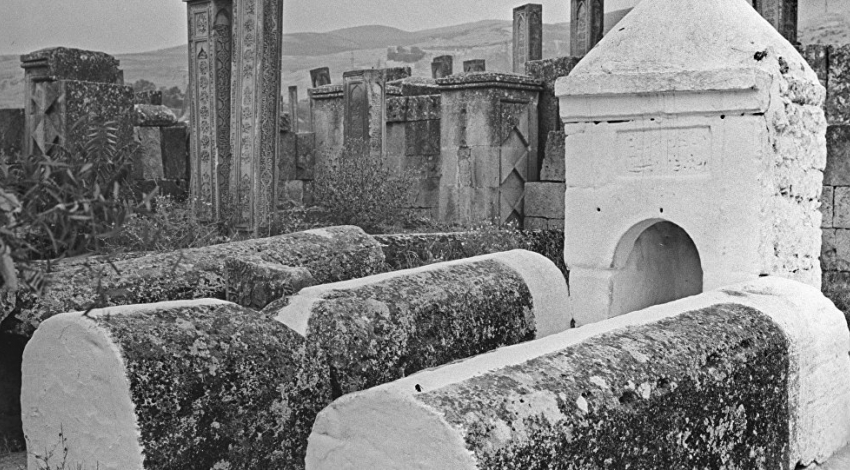Seasonal flooding and the erosion of�the riverbed of�a local river, caused by�recent heavy rains, revealed an old cemetery in�the vicinity of�a holy shrine in�Jouyom, a town in�Larestan County in�Fars Province, Iranian Students News Agency reported. The information was confirmed by�Khoshayar Shibani, the head of�the local office of�Iran's Cultural Heritage, Handcrafts and Tourism at�a press conference.
?"Apparently, the graveyard dates back to�the 7th century of�the lunar calendar (13th�� 14th century AD)," Shibani told reporters. He also added that local inhabitants had only accepted Islam in�the 9th century AD, so most of�the historical monuments found near�Jouyom reflect the cultural heritage of�Islam.
The cultural heritage official denied rumors about�the discovery of�an ancient city. "Larestan's Office of�Cultural Heritage, Handcrafts and Tourism Organization has been informed only about�the discovery of�the cemetery," he continued.
?According to�Shibani, all artifacts were promptly collected by�local authorities and transferred to�a special repository. The area where the tablets were found is cordoned off�and guarded by�the police. Immediately after�the water level descends, archaeologists will begin studies and excavations in�the area.
# Tags











